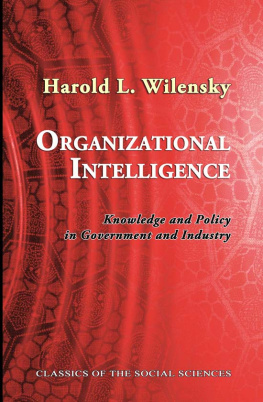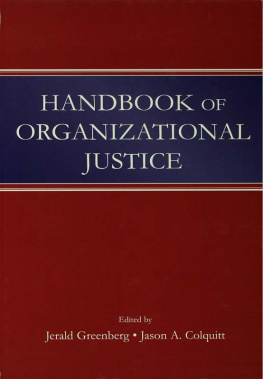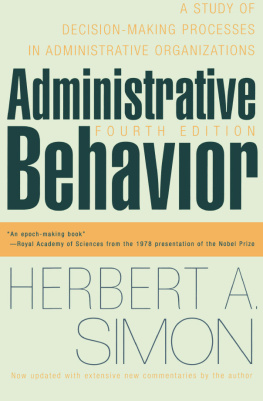About the Author
Harold L. Wilensky (19232011) was a professor of sociology and political science for more than fifty years at the University of California, Berkeley. Wilensky made major contributions to understanding the impact of industrial transformation on the structure, culture, and politics of modern society. He was a pioneer in the study of the welfare state and social policy, the intellectual life of labor unions, and the structural and ideological roots of intelligence failures in government and industry.
He was educated at Antioch College and received his Ph.D. in sociology from the University of Chicago. He served in the United States military in various capacities, including service in the European Theater in World War II, and worked with unions and in voting rights before joining the faculties of the University of Michigan and the University of California, Berkeley (the latter in the departments of sociology and, later, political science).
Wilensky produced 75 articles and 13 books that are regarded as interdisciplinary, innovative, rigorous, substantively rich, and focused on important real-world issues. Among his books are American Political Economy in Global Perspective (2012), Rich Democracies (2002), Industrial Society and Social Welfare (1958), The Welfare State and Equality (1975), and Intellectuals in Labor Unions (1956). The prize-winning book Organizational Intelligence (1967) focused on the structural and ideological roots of intelligence failures in government and industry.
Wilensky was a fellow of the American Academy of Arts and Sciences and was twice a fellow at the Center for Advanced Study in the Behavioral Sciences. At Berkeley, he was a research project director at the Institute for International Studies. He served on the executive committees of the Institute of Industrial Relations and the Survey Research Center. He was on the editorial boards of the American Sociological Review, Industrial Relations, the Journal of Human Resources, and Social Problems.
Bibliography
Abel, Elie. The Missile Crisis. Paperback edn. New York: Bantam Books, 1966.
Adams, Sherman. Firsthand Report. New York: Popular Library, 1962.
Altshuler, Alan. The City Planning Process; A Political Analysis. Ithaca: Cornell University Press, 1965.
Argyris, Chris. Organization of a Bank. New Haven: Labor and Management Center, Yale University, 1954.
Aron, Raymond. On War. New York: Doubleday Anchor Books, 1959.
Bailey, Stephen K. Congress Makes a Law: The Story Behind the Employment Act of 1946. New York: Columbia University Press, 1950.
Banton, Michael. The Policeman in the Community. New York: Basic Books, 1964.
Barber, Bernard. Science and the Social Order. Rev. edn. New York: Collier Books, 1962.
Baritz, Loren. The Servants of Power: A History of the Use of Social Science in American Industry. Middletown: Wesleyan University Press, 1960.
Barnard, Chester I. Functions and Pathology of Status Systems in Formal Organizations, in Industry and Society. Ed. by William Foote Whyte. New York: McGraw-Hill Book Co., 1946. Pp. 4683.
Barth, Alan. The Price of Liberty. New York: The Viking Press, 1961.
Bauer, Raymond A., Ithiel de Sola Pool, and Lewis Anthony Dexter. American Business and Public Policy: The Politics of Foreign Trade. New York: Atherton Press of Prentice-Hall, 1963.
Bell, Daniel. Government by Commission, The Public Interest, No. 3 (Spring, 1966), pp. 39.
Bendix, Reinhard. Max Weber: An Intellectual Portrait. Garden City: Doubleday & Company, 1960.
Bendix, Reinhard. The Age of Ideology: Persistent and Changing in Ideology and Discontent. Ed. by David E. Apter. New York: The Free Press, 1964. Pp. 294327.
Bendix, Reinhard. Nation-building and Citizenship: Studies of Our Changing Social Order. New York: John Wiley & Sons, 1964.
Berliner, Joseph S. Factory and Manager in the U.S.S.R. Cambridge: Harvard University Press, 1957.
Blau, Peter M., and Richard W. Scott. Formal Organizations: A Comparative Approach. San Francisco: Chandler Publishing Company, 1962.
Bontecou, Eleanor. The Federal Loyalty-Security Program. Ithaca: Cornell University Press, 1953.
Boorstin, Daniel J. The Image or What Happened to the American Dream. New York: Atheneum, 1962.
Brooks, John. The Fate of the Edsel and Other Business Adventures. New York: Harper & Row, 1959.
Burnham, James. The Managerial Revolution. New York: John Day, 1941.
Burns, James MacGregor. Roosevelt: The Lion and the Fox. Harvest paperback edn. New York: Harcourt, Brace and World, 1956.
Burns, Tom, and G. M. Stalker. The Management of Innovation. London: Tavistock Publications, 1961.
Butow, Robert J. C. Japans Decision to Surrender. Stanford: Stanford University Press, 1954.
Butterfield, Herbert. The Statecraft of Machiavelli. 1st edn., Collier paperback. New York: Collier Books, 1962.
California Assembly, The Dilemma of Mental Commitments in California: A Background Document. Subcommittee on Mental Health Services. Sacramento: Department of General Services, Documents Section, 1966.
Churchill, Winston S. Their Finest Hour. Vol. II: The Second World War. 6 vols. Boston: Houghton Mifflin, 1949.
Cleary, Edward W. Evidence as a Problem in Communicating, Vanderbilt Law Review, V (April, 1952), 277281.
Clokie, H. M., and J. W. Robinson. Royal Commissions of Inquiry: The Significance of Investigations in British Politics. Stanford: Stanford University Press, 1937.
Compton, Neil. TV Chronicle, Commentary, XLI (April, 1966), 8486.
Cook, Fred J. The FBI Nobody Knows. New York: Pyramid Publications, 1965.
Craven, Wesley F., and James L. Cate, eds. The Army Air Forces in World War II. 7 vols. Chicago: University of Chicago Press, 19481958.
Crozier, Michel. The Bureaucratic Phenomenon. Chicago: University of Chicago Press, 1964.
Cyert, Richard, and James March. A Behavioral Theory of the Firm. Englewood Cliffs: Prentice-Hall, 1963.
Dahl, Robert A., and Charles E. Lindblom. Politics, Economics, and Welfare; Planning and Politico-Economic Systems Resolved into Basic Social Processes. New York: Harper & Brothers, 1953.
Dale, Ernest. Planning and Developing the Company Organization Structure, Research Report No. 20. New York: American Management Association, 1952.
Dale, Jerry. Bill of Rights Violatedby Company Snoopers, UAW-Solidarity, IX (March, 1965), 45.
Dalton, Melville. Men Who Manage: Fusions of Feeling and Theory in Administration. New York: John Wiley & Sons, 1959.
Davey, Harold W. The Experience of Other Countries, in Formulating the Federal Governments Economic Program: A Symposium, American Political Science Review XLII (April, 1948), 295307.
Davis, E. Eugene. Legal Structures in a Changing Society, in F. James Davis, et al. Society and the Law. New York: The Free Press, 1962. Pp. 196226.
Davis, F. James, Henry H. Foster, Jr., C. Ray Jeffery, and E. Eugene Davis. Society and the Law. New York: The Free Press, 1962.
Davis, Kenneth Culp. Administrative Law Treatise. Vol. II. St. Paul: West Publishing, 1958.
de Huszar, George B., ed. The Intellectuals: A Controversial Portrait. Glencoe: The Free Press, 1960.
Dession, George. Psychiatry and the Conditioning of Criminal Justice, Yale Law Review, XLVII (January, 1938), 319340.
Devons, Ely. Planning in Practice: Essays in Aircraft Planning in Wartime. Cambridge, Eng.: At the University Press, 1950.
Draper, Jean, and George Strother. Testing a Model for Organizational Growth, Human Organization XXII (Summer, 1963), 180194.
Drucker, Peter. The Practice of Management. New York: Harper & Brothers, 1954.
Dubin, Robert. The World of Work: Industrial Society and Human Relations. Englewood Cliffs: Prentice-Hall, 1958.








